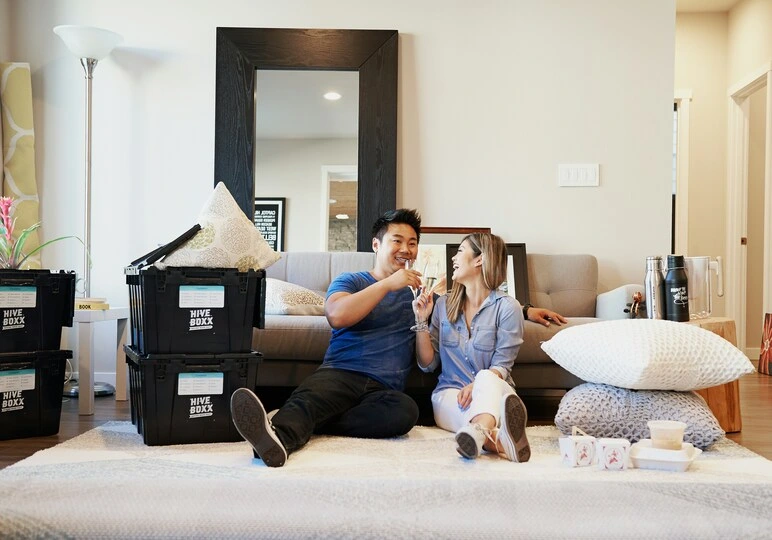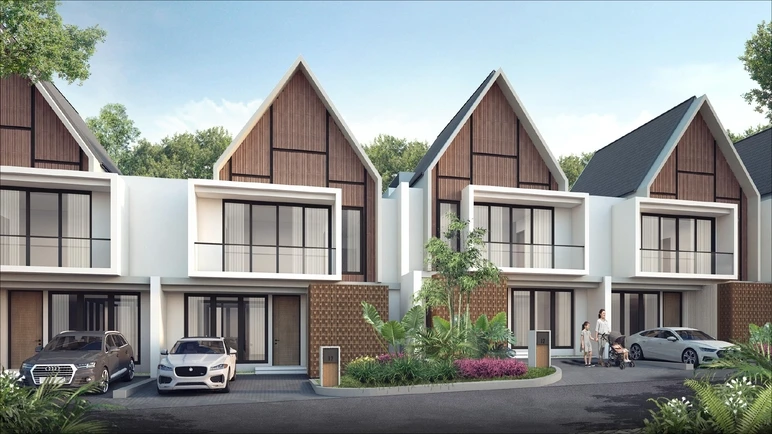
Indonesia’s dynamic real estate landscape is increasingly capturing the interest of expatriates seeking not just a place to live, but a meaningful investment in one of Southeast Asia’s fastest-growing economies. While property ownership for foreigners has long been wrapped in regulatory complexity, evolving legal frameworks and financial instruments are beginning to shift the narrative.
At the forefront of this shift is Kredit Pemilikan Rumah (KPR)—Indonesia’s mortgage financing system—which is emerging as a powerful tool for expats looking to own property without the burden of full upfront capital. Thanks to regulatory reforms, foreigners can now access KPR, previously available only to locals.
This breakthrough is supported by Ministerial Regulation ATR/BPN No. 18 of 2021 on the Procedure for Granting Management Rights and Land Rights, an implementation of Law No. 11 of 2020 on Job Creation (Omnibus Law), which governs foreign property ownership in Indonesia.
Beyond easing financial entry, KPR proposes to expats a strategic pathway to integrate more deeply into the local market, aligning their property goals with long-term personal or professional ambitions.
So, yes, expats can own property in Indonesia. They are permitted to own these types of properties:
- Landed houses (rumah tapak) built on state land with a Right of Use (Hak Pakai) must qualify as luxury housing, limited to one plot per person or family, with a maximum land area of 2,000 m².
- Private freehold land (Hak Milik) or land under Management Rights (HPL) with the use right attached.
- Strata-title apartments (rumah susun) built on land with Right to Build (HGB) status must be commercial, not subsidised or government-subsidised housing.
However, not all types of property are available for foreign ownership. Sertifikat Hak Milik (SHM), or the freehold title, is strictly reserved for Indonesian citizens and cannot be held by foreigners.
According to Government Regulation No. 103 of 2015, expats may:
- Own landed houses for 30 years, extendable by 20 years
- Upon expiry, renew the right for another 30 years
- On privately owned land (Hak Milik), tenure is limited to 30 years, with the same renewal structure based on agreement with the landholder.
KPR for expats
The introduction of KPR schemes tailored for expats enables them to finance property purchases through Indonesian banks. This serves as a means of opening new pathways for foreign investment in the national housing sector.
That said, there are differences between KPR for Indonesians and KPR for expats. The terms, eligibility criteria, and participating banks vary significantly. Be prepared to meet several conditions for considering a mortgage.

Valid immigration documents
You must hold a valid Temporary Stay Permit (KITAS) issued by Indonesia's Ministry of Law and Human Rights. This document proves your legal status and is a mandatory requirement for KPR applications.
Professional background
Each bank sets different rules regarding eligible professions:
- Commonwealth Bank only accepts applicants employed in the private sector with at least two years of work experience.
- Permata Bank accepts foreign entrepreneurs with a minimum of 4 years of business activity in their field.
Loan tenure
Tenure for foreign KPR applicants may be shorter than for Indonesian citizens and is often aligned with the applicant’s employment contract and/or KITAS validity period—reflecting the bank's risk considerations.
Supporting documents checklist
Expats are required to use their own name for property registration—nominee structures are illegal. Aside from the three major points mentioned above, prepare the documents below to apply for a mortgage:
- Bank statements
- Employment letter
- Proof of funds
- Proof of tax payments
- Salary slips or proof of income
- Statement of non-ownership (Surat Pernyataan Tidak Memiliki Hunian di Indonesia)
- Tax ID (NPWP)
- Valid passport

Banks offering KPR for expats
Bank Permata Syariah, Commonwealth Bank Indonesia, and J Trust Bank are several banks currently offering mortgage services to expats.
Bank Permata Syariah
This Sharia-compliant home financing is, in other words, non-interest-based and tailored for foreign professionals and entrepreneurs.
Criteria:
- Employees who have resided and worked in Indonesia for at least two years
- Entrepreneurs with at least four years of operational experience in the field
- Minimum net monthly income worth IDR 25 million (individual income only, joint income not accepted)
- Minimum property value of IDR 2 billion
- Minimum loan amount of IDR 1 billion
- The property certificate must be Right to Build (SHGB). If the property is freehold (SHM), it must be converted prior to financing
- Loan-to-value (LTV) ratio capped at 60 per cent, meaning a minimum 40 per cent down payment
- Property must be ready stock (not under construction)
Commonwealth Bank Indonesia
The Australian bank operating in Indonesia offers mortgages for homes and apartments to foreign nationals. The loan amount is up to IDR 15 billion, while tenure options range from three to 10 years.
Requirements:
- Minimum age of 21 years old
- The maximum age at loan maturity is expected to be 60 years
- Must live, work, and purchase property within the same city where the bank operates
- Minimum two years of employment
- Property title must be SHGB
J Trust Bank
The Japanese financial institution presents competitive KPR products with up to 30 years’ tenure.
Eligibility:
- Open to Indonesian citizens and expats legally residing in Indonesia
- Minimum age at application starts from 21 years old
- Maximum age at loan maturity varies; 55 years for employees and 65 years for entrepreneurs or professionals
- Must have a stable income
- Employees must have at least two years of current or combined employment
- Entrepreneurs or professionals must have a minimum of three years of experience in their field
Minimum property prices by region
Property purchases by expats are only permitted in designated areas approved by the government. The government has set minimum price thresholds for foreign property purchases to prevent speculation.
Landed House (Rumah Tapak)
Jakarta - Minimum of IDR 10 billion
Banten, West Java, East Java, Bali, Yogyakarta - Minimum of IDR 5 billion
Central Java, West Nusa Tenggara, North Sumatra - Minimum of IDR 3 billion
East Kalimantan, South Sulawesi - Minimum of IDR 2 billion
Other provinces - Minimum of IDR 1 billion
Strata-title Apartment (Rumah Susun)
Jakarta - Minimum of IDR 3 billion
Banten, Bali - Minimum of IDR 2 billion
East Java - Minimum of IDR 1.5 billion
West Java, Central Java, Yogyakarta, West Nusa Tenggara, North Sumatra, East Kalimantan, South Sulawesi - Minimum of IDR 1 billion
Other provinces - Minimum of IDR 750 million

Practical tips for foreign mortgage applicants
Foreign owners are subject to taxation on their property, including annual property taxes (PBB) and potential income taxes on gains. Thus, before moving forward, consider easing your mortgage journey with these tips below:
- Contact banks directly for the latest eligibility criteria.
- Choose your location, property type, and developer wisely.
- Review all terms and responsibilities outlined in the loan agreement.
- Use a certified real estate agent to guide you through legal and administrative processes.
- Consider speaking with a financial advisor to evaluate your long-term affordability.




 Mirella Pandjaitan
Mirella Pandjaitan
 Sep 03, 2025
Sep 03, 2025